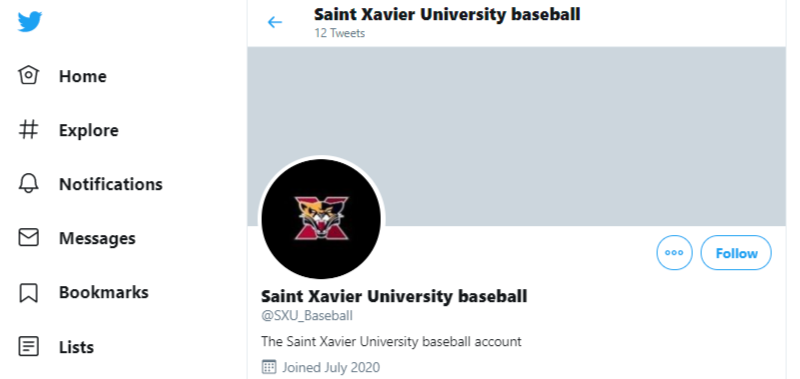Who is the rightful owner of a social media account? This has become a very important question no matter whether the account is on Twitter, Instagram, Facebook, Snapchat, TikTok.
Disputes commonly arise surrounding the ownership of social media accounts when employees who had access to and used those accounts during their employment are no longer working on behalf of the employer, which realizes the value of holding onto the accounts at the conclusion of employment and will sometimes litigate over who should have control of the accounts thereafter. That situation is beginning to play itself out in a federal court situated in Illinois.
Saint Xavier University (SXU) has sued Rocco Mossuto on two counts: (1) trademark infringement; and (2) conversion. The university based in Chicago is partially suing the school’s former head baseball coach for taking sole possession and control of the Twitter account “SXUBaseball” after his contract with the university was terminated in June 2020. SXU claims that it has been the owner of the Twitter account at all relevant times, which includes the six years of Mossuto’s employment with the university.
Eventually, Mossuto returned control of the SXUBaseball Twitter account to the university; however, he created a new Twitter account under the name “SXU_Baseball” with a display name of “SXUBaseball.” Furthermore, the bio for Mossuto’s new Twitter account simply stated, “St. Xavier University Baseball. #FreeRocco.” In July or August, the bio was changed to read, “The Saint Xavier University baseball account” and the display name was modified to “Saint Xavier University baseball,” which is still what is displayed publicly as of this post being published on September 4. Additionally, the avatar used in connection with the SXU_Baseball Twitter account is an exact copy of the SXU athletic program’s cougar mascot trademark.
SXU’s trademark infringement count is premised on Mossuto’s new Twitter account causing a likelihood of confusion amongst the general public who, SXU claims, will be confused into believing that the SXU_Baseball Twitter account is owned or associated with SXU and that its tweets are authorized by SXU, reflecting the school’s views. The school is technically suing for false designation of origin, under 15 U.S.C. § 1125(a), because it does not have federal registrations for its marks and instead is litigating on the premise that the unauthorized use of its federal common law trademarks in “Saint Xavier University,” “SXU,” “SXUBaseball,” and the cougar mark constitutes intentional infringement. A better action would have been brought under 15 U.S.C. § 1117; however, that requires the marks to be registered with the U.S. Patent and Trademark Office.
SXU’s second and final count, for conversion, alleges that SXU is and always has been the exclusive owner of the separate SXUBaseball Twitter account, which Mossuto continued to possess for some time after the termination of his employ with the university. This count may require the court to look at Mossuto’s employment agreement (if he had one) to determine whether it included any language with regard to the ownership and/or transfer of intellectual property rights, which could have specifically set forth who owns and controls social media accounts. In the absence of such a contract, or any language identifying the rights of the parties, it should turn to being a heavy factual inquiry as to whom created the accounts, any understandings by and between the parties as to ownership and control, and any case law on the subject. At a minimum, the conversion claim should survive a motion to dismiss, but even if the school prevails on this count, it may be hard to prove damages, and SXU has regained control of the Twitter account. Thus, this case likely boils down to the SXU_Baseball account and whether Mossuto is willing to move on from what looks to be a pretty strong claim for the school related to false designation of origin.

